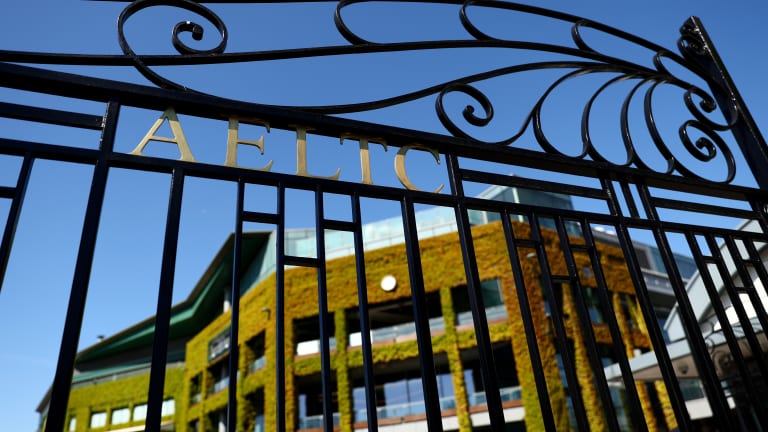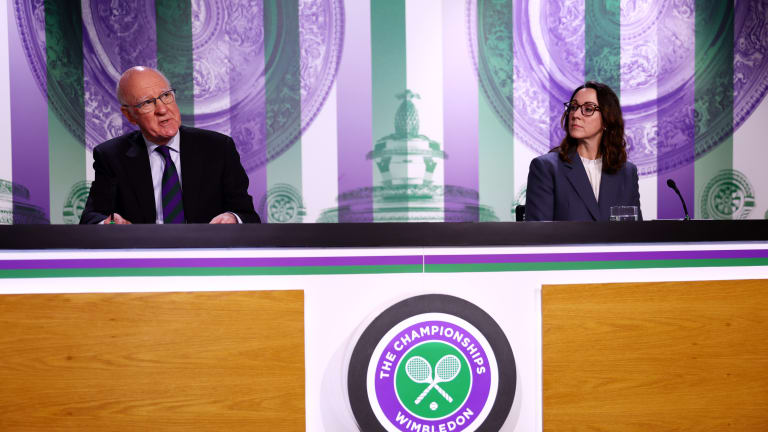Wimbledon
In banning Russian and Belarusian players, Wimbledon bucks the tide in tennis—again
By Apr 27, 2022Wimbledon
Darren Cahill: Jannik Sinner watches more Carlos Alcaraz matches than he does with any other player
By Jul 14, 2025Wimbledon
Jannik Sinner reignites Carlos Alcaraz rivalry with Wimbledon victory
By Jul 14, 2025Wimbledon
Jannik Sinner reversed his usual pattern against Carlos Alcaraz. It won him Wimbledon
By Jul 14, 2025Wimbledon
Veronika Kudermetova and Elise Mertens win women's doubles title at Wimbledon
By Jul 13, 2025Wimbledon
Joy to the World: What Carlos Alcaraz has, and what we are enjoying
By Jul 13, 2025Wimbledon
Iga Swiatek keeps surprising herself after Wimbledon title caps "surreal" turnaround on grass
By Jul 12, 2025Wimbledon
Iga Swiatek wins first Wimbledon, sixth Grand Slam title with 6-0, 6-0 rout of Amanda Anisimova
By Jul 12, 2025Wimbledon
Wimbledon men's final preview: Will Carlos Alcaraz, Jannik Sinner share another epic?
By Jul 12, 2025Wimbledon
Julian Cash, Lloyd Glasspool become first all-British pair to win Wimbledon men's doubles title since 1936
By Jul 12, 2025In banning Russian and Belarusian players, Wimbledon bucks the tide in tennis—again
The All England Club was not merely smart, says the author, but more importantly, right.
Published Apr 27, 2022
Advertising
Advertising

Wimbledon's closed, wrought iron gates will take on a new meaning this summer.
© Getty Images
Advertising
Advertising

Ian Hewitt, Chairman of the All England Club, and Sally Bolton, Chief Executive of the All England Club, speaking to the press about the decision on April 26.
© Getty Images